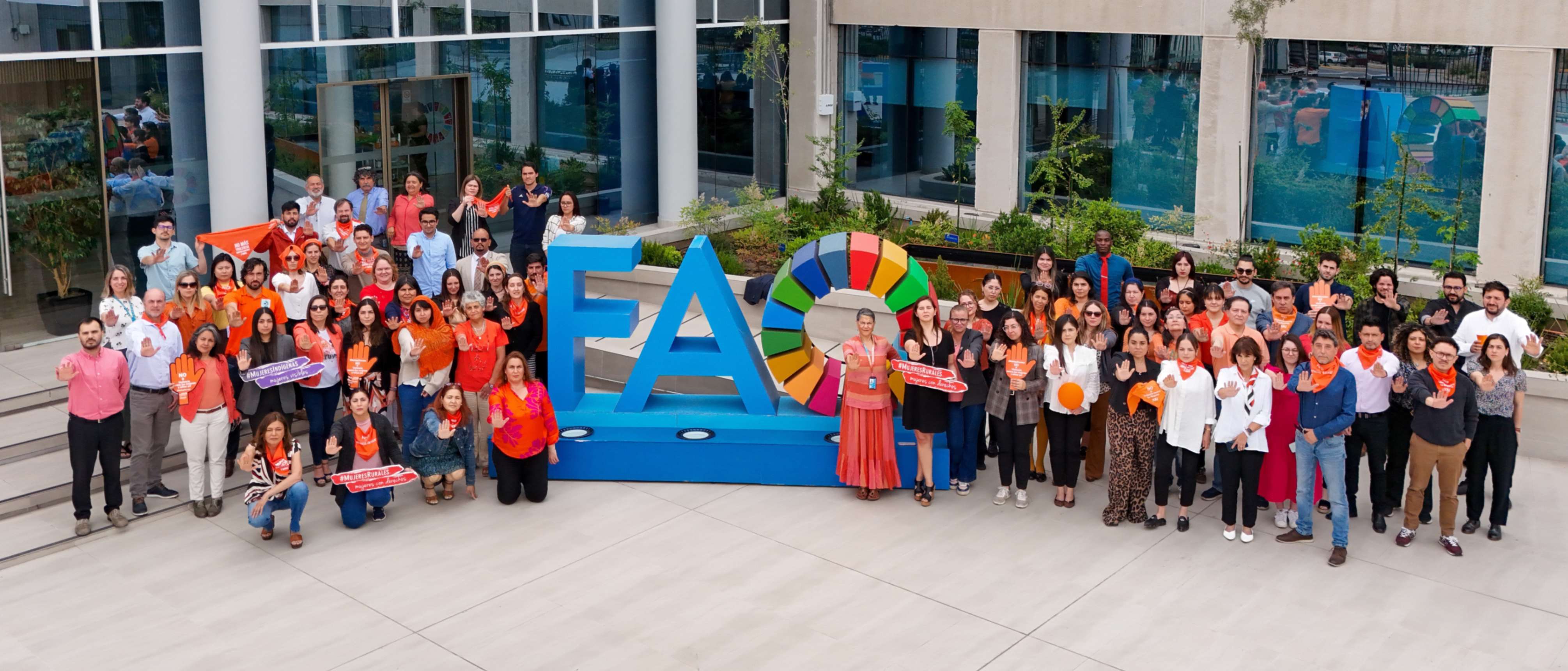FAO strengthens its commitment to ending violence against women and girls in Latin America and the Caribbean
The Organization has implemented Protection from Sexual Exploitation and Abuse (PSEA) protocols to ensure safe and equitable environments in its teams and projects

©FAO/Max Valencia
As part of the commemoration of the International Day for the Elimination of Violence Against Women, the Food and Agriculture Organization of the United Nations (FAO) held an internal event bringing together specialists, civil society representatives, and technical teams to reflect on best practices and lessons learned in the prevention and response to gender-based violence (GBV).
The event, "Overcoming Violence Against Women and Girls to Strengthen Agrifood Systems in Latin America and the Caribbean," was attended by over 120 staff members and aligned with the UN Secretary-General's global campaign, UNiTE.
The meeting addressed the structural challenges faced by rural, Indigenous, and Afro-descendant women in accessing justice, support services, and economic opportunities. Participants also discussed community prevention strategies, the challenges of implementing the PSEA plan, and the importance of interinstitutional collaboration to overcome discriminatory norms and barriers perpetuating gender-based violence.
FAO and Zero Tolerance for Gender-Based Violence
FAO maintains a strict zero-tolerance policy for gender-based violence, including sexual exploitation and abuse, through the implementation of protocols and specific actions that protect human rights and strengthen resilient livelihoods in rural communities.
In collaboration with Member States, UN agencies, civil society, academia, the private sector, Indigenous Peoples, Afro-descendants, and other stakeholders, the Organization works to prevent and mitigate risks by empowering rural women and promoting their full participation in transforming agrifood systems.
Looking ahead to the International Year of Women Farmers in 2026, FAO reaffirms its commitment to addressing discriminatory norms and challenges that hinder women's full engagement in agrifood systems, prioritizing actions that integrate gender perspectives and the prevention of all forms of violence in its daily work and projects.
FAO recognizes that gender equality is a fundamental human right and a pathway to achieving food and nutrition security while building more efficient, sustainable, resilient, and equitable agrifood systems.
Contact
Ricardo Rivera Communications Specialist [email protected]
Constanza Soudy Technical Assistant for Implementation and Awareness [email protected]
